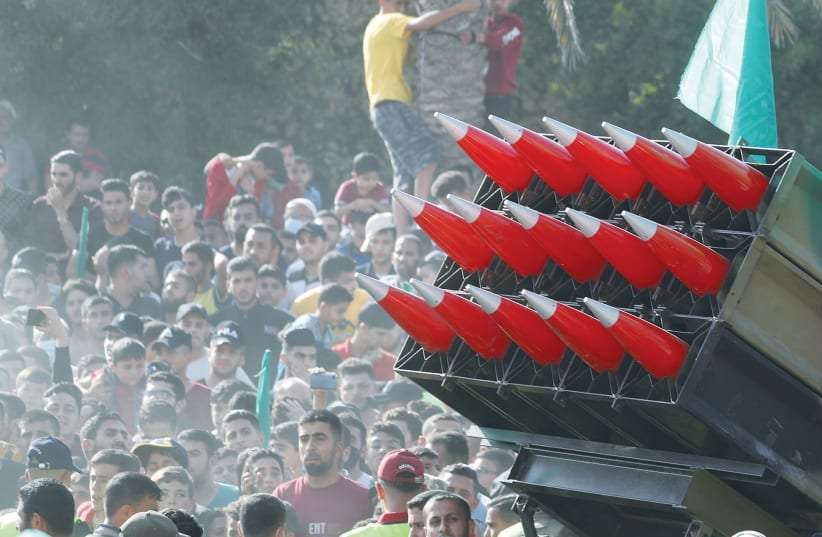The truce between Israel and Hamas remains very shaky, the United Nations’ senior Middle East envoy told the Security Council days after the Palestinians warned that Gaza violence could be renewed.
“I urge all sides to refrain from unilateral steps and provocations, take steps to reduce tensions, and allow these efforts to succeed,” UN Special Coordinator for the Middle East Peace Process Tor Wennesland told the UN Security Council in a virtual address from Jerusalem.
“Everyone must do their part to facilitate ongoing discussions to stabilize the situation on the ground and avoid another devastating escalation in Gaza,” he said.
“The UN is working closely with all concerned parties and partners, including Egypt, to solidify a ceasefire, allow the entry of urgent humanitarian assistance and stabilize the situation in Gaza,” Wennesland said.
Last week a meeting he held with Hamas’s Gaza leader, Yahya Sinwar, fell apart, particularly concerning Israel’s reluctance to allow Qatari cash payments back into Gaza, and on the possibility of a prisoner swap that would allow two civilians and the remains of two IDF soldiers to be returned to Israel. Wennesland has called for the release of the Israelis, including at the UNSC.
On Wednesday, Wennesland met Defense Minister Benny Gantz and Coordinator of Government Activities in the Territories (COGAT) head Maj.-Gen. Rassan Alian. “We discussed security in the Gaza Strip and I stressed the need to create conditions for long-term calm, while actively taking steps to get our captives and MIAs back. I further thanked him for his committed efforts and for the UN’s role in fostering stability in our region,” said Gantz.
In a positive sign on Thursday, COGAT eased some of the Gaza restrictions. Raw material can now enter Gaza through the commercial crossing at Kerem Shalom and the fishing zone was expanded from six to nine nautical miles.
“The civilian measures approved by the political echelon are conditional upon the preservation of stable security,” COGAT said.
Wennesland told the UNSC that he was concerned about continued closures at Kerem Shalom and said that funds were needed to rehabilitate Gaza.
The UN, the World Bank and the European Union “will soon release a Rapid Damage Needs Assessment that will estimate the longer-term reconstruction and recovery needs in Gaza,” he said. That will be followed in July, he added, by an emergency meeting of the Ad Hoc Liaison Committee which organizes donor funding for the Palestinians.
Wennesland also noted that UN Relief and Works Agency which serves Palestinian refugees had a $150 million shortfall.
Linda Thomas-Greenfield, the US ambassador to the UN, said that a mechanism had still not been finalized to stop Hamas diverting materials for military use that was intended for civilian reconstruction and other humanitarian supplies.
“All of us must work and coordinate with the UN, Israelis, Palestinians and other key actors to ensure the designated beneficiaries are the ones who actually receive international assistance,” Thomas-Greenfield said.
